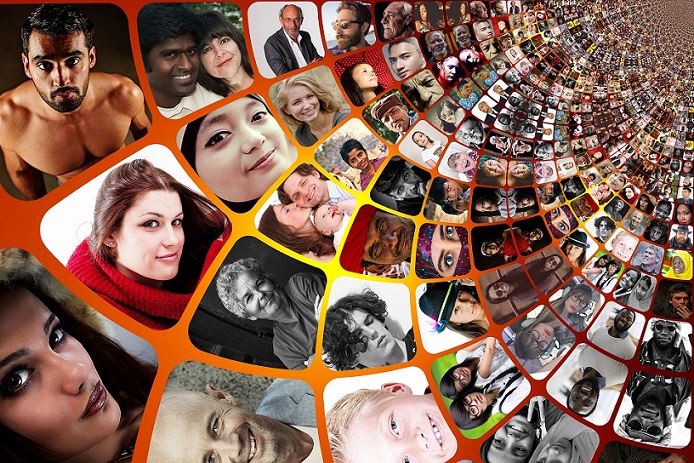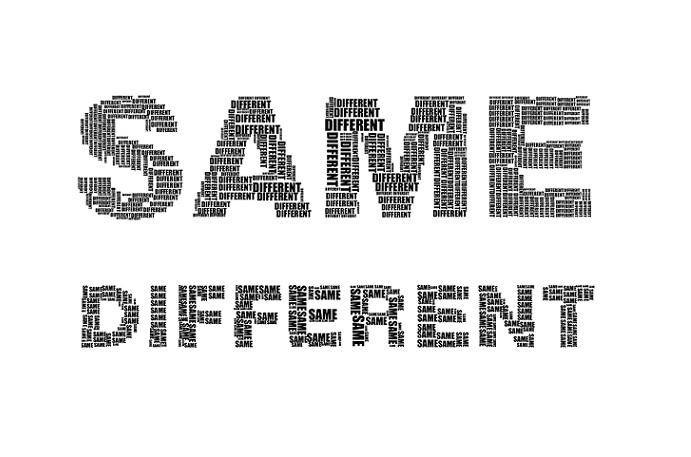
Future investment in diversity and inclusion in the brass band movement is needed
Although the most testing concern at present for the majority of bands surrounds financial security, the most important challenge for the future well-being of the brass band movement is surely that of investment to increase levels of diversity and social inclusion.
Or at least to start tackling our lack of it.
Mirror image
Look into the brass band mirror and what do you see peering back at you in the third decade of the 21st century?
Brass bands should be an artistic representation of the communities we hail from - but they themselves have undergone enormous change over the last 30 years or more.
However, to those looking in at us (as well as many within) our appearance doesn’t really reflect that.
Brass bands should be an artistic representation of the communities we hail from - but they themselves have undergone enormous change over the last 30 years or more.
The Charities Commission for England & Wales describes social exclusion as being excluded from parts of society as a result of unemployment; financial hardship; youth or old age; ill health (physical or mental); substance abuse or dependency; discrimination on the grounds of sex, race, disability, ethnic origin, religion, belief, creed, sexual orientation or gender re-assignment; poor educational or skills attainment; relationship and family breakdown; poor housing or crime (either as a victim of crime or as an offender rehabilitating into society).

We can all enjoy the same music making by being different
Positive understanding
Most people would agree that a positive understanding of the challenges posed in a number of these areas has been made by the brass band movement, especially through a more enlightened education system, yet a cursory (albeit anecdotal) examination of the overall structural makeup of adult bands in the UK still reveals an alarming lack of identifiable progress.
We remain a predominately white, working class, male dominated form of amateur music making.
However, this isn’t just about the obvious need to address the current lack of BAME players and conductors, female composers, musicians with disabilities or youngsters in position of organisational authority (the list can be amended to reflect any number of variants), but how we desperately need to reach out to those from different cultural, religious and ethnic groups within our communities.
We remain a predominately white, working class, male dominated form of amateur music making.
We need to proactively encourage people to feel welcome within a brass band by simply being themselves.
Being different
It shouldn’t be an insurmountable problem, yet speaking to many people who have encountered overt abuse for “being different” in the banding movement, it is one that urgently needs addressing and defeating.
And to do that we shouldn’t be afraid of raising our own personal levels of awareness to tackle the more insidious aspects of intolerance either.
Individually we all have a role to play. Paying lip service through merely saying we are part of an organisation that has aims and objectives to tackle prejudice is not enough.
Individually we all have a role to play. Paying lip service through merely saying we are part of an organisation that has aims and objectives to tackle prejudice is not enough.
Our own acceptance of ‘low level’ intolerance is a failure to tackle the problem at its basic embryonic stage.

Taking the lead: Brass Bands England has taken a proactive role
No place
There can be no place in brass banding for the sly jokes and innuendo, outdated stereotypes, lazy, ignorant inferences: No place for it from conductors, administrators, supporters and players alike.
However small the minority of ignorant perpetrators, it can and must be stamped out by positive affirmative action.
We should not forget that we are all protected by legislation under the Equality Act. There are no exclusion clauses in it to allow people to discriminate or abuse you just because you happen to play in a brass band environment with 30 other people twice a week.
And whilst there may well be people who believe we do not have a problem embracing social inclusion and diversity, on the evidence 4BR has found in speaking to those who have suffered discrimination, prejudice and intolerance or seen it taking place, it is certainly exists and is showing little sign of being eradicated.
Social media
Examples of direct experience are depressingly illuminating - especially in an age when prejudices can be readily expressed and solidified through the lens of social media.
In the last week alone there have been examples of an acceptance of levels of on-line racist and homophobic abuse.
Prior to the COVID-19 lockdown, 4BR was informed of the type of ‘jokes’ regularly espoused through a casual form of spitefulness, ignorance, fear and loathing at rehearsals - disguised as ‘banter’ about people with disabilities or simply trying to reinforce misogynistic stereotyping.
Prior to the COVID-19 lockdown, 4BR was informed of the type of ‘jokes’ regularly espoused through a casual form of spitefulness, ignorance, fear and loathing at rehearsals - disguised as ‘banter’ about people with disabilities or simply trying to reinforce misogynistic stereotyping.
Positive light
However, you were also reminded of the excellent ‘Diversity & Inclusion’ session hosted by Brass Bands England (BBE) at their ‘Better Banding for All’ Conference in late 2019.
Led by Sophie Hunter (above) it shone a stark but positive light on a subject long overdue critical examination and discussion.
Brass Bands England has it critics, but on this subject it is leading the way. By 2030 it has the ambition of seeing the make-up of its member bands more accurately reflect the general diversity characteristics of the communities and societies they represent.
Their efforts should be supported wholeheartedly, as should others such as the Scottish Brass Band Association that is also tackling the issue.
Encouraging
It has also been encouraging to talk to people who has proactively promoted inclusion in musical education and reaped the benefits, such as Chris Wormald at Smithills School amongst others, as well as a host of community bands that have quietly and effectively reached out into the hearts of their communities to embrace the benefits of social change.

There was a brilliant atmosphere of inclusion at the 2019 National Youth Championships
Education the key
All agree that education is the key – and at all levels of the banding movement.
For example, we simply cannot afford to lose the sheer joyful inclusivity that is so brilliantly displayed at the National Youth Championships (and to the same extend the UniBrass event) by simply ignoring the fact that far too many youngsters eventually find ‘adult’ banding an unattractive way to enjoy themselves as themselves.
Is your band really proactive in promoting inclusivity and diversity, or only when it suits it?
And if in doubt just think how many times a band (or more usually characters within it) have made things difficult for people who do not fit into their interpretation of the rigidity of ‘banding tradition’ because of age, disability, gender reassignment, race, religion or belief, sex, sexual orientation, marriage or more?
Is your band really proactive in promoting inclusivity and diversity, or only when it suits it?

Social media can be a platform for the informed and the ignorant
Ignorance
Unfortunately, the banding movement still has a fetid underbelly of prejudice that creeps along leaving its distasteful slime of ignorance in its wake – especially on social media. It is a minority, but they leave a stain on us all.
Debate is fast becoming a thing of the past. Now people invariably simply seek endorsement from the echo chamber of like minded people that follow them - no matter how vile the comments have become.
If you disagree, you are simply blocked.
And it is vile.
Unfortunately, the banding movement still has a fetid underbelly of prejudice that creeps along leaving its distasteful slime of ignorance in its wake – especially on social media. It is a minority, but they leave a stain on us all.
No place
Giving a ‘thumbs up’ to a strand of racist bile is just as sickening as if it was typed by the person themselves. These people have no place in any movement that wishes to project itself as inclusive and diverse.
They must be challenged and exposed, the views debunked, the attitudes changed through informed debate. It has been done before.
Simply trying to think the problems of ignorance can be solved through our own form of exclusion is no answer at all.
New era
The harder route to take is meeting the problem head on and working tirelessly to change ingrained attitudes – not isolating them further.
Hopefully, when banding’s self isolation ends in the near future we will emerge into a new era of greater understanding of just how fragile our musical existence really is.
With commitment and dedication the financial challenges will be overcome, yet without an acceptance that we can only build a vibrant successful future by fully embracing inclusivity and diversity, it will all end up in a bankruptcy of a different kind.
And if that is the case, we will deserve to look at ourselves in the mirror and find that we have become even more isolated, marginalised and irrelevant than we could have ever have imagined.
Iwan Fox













